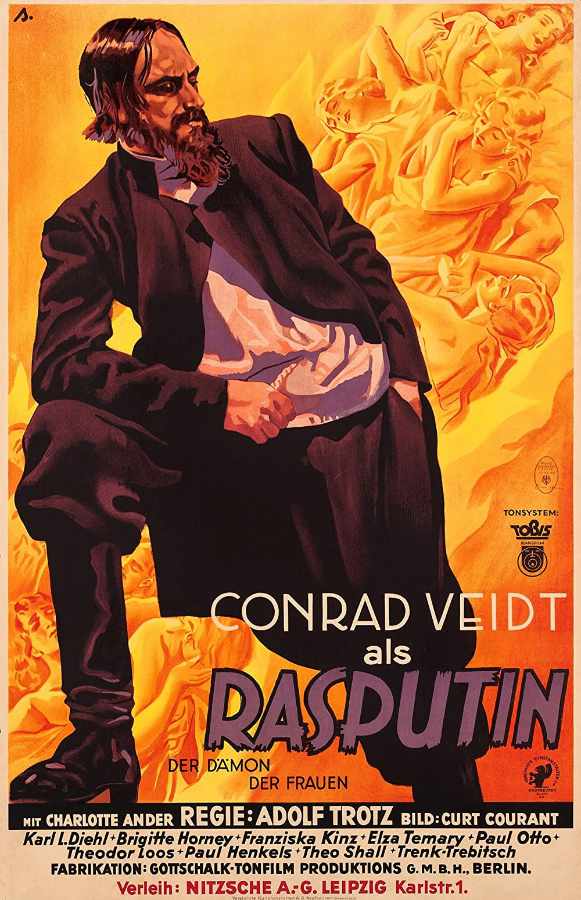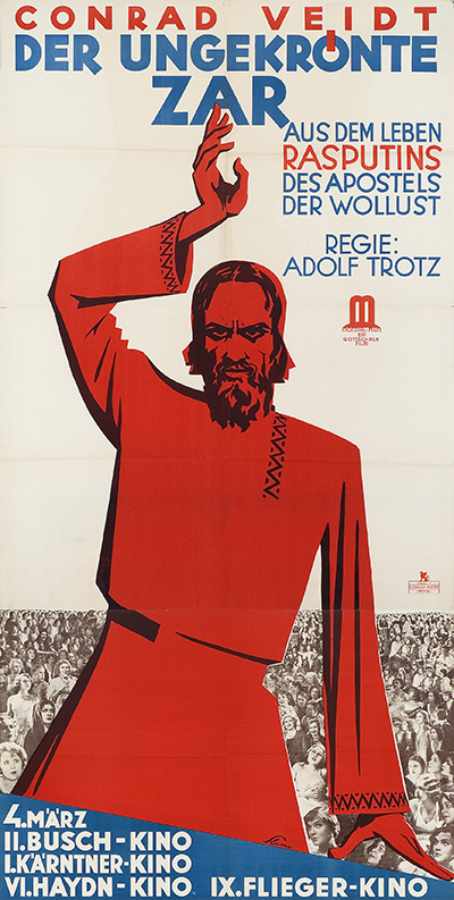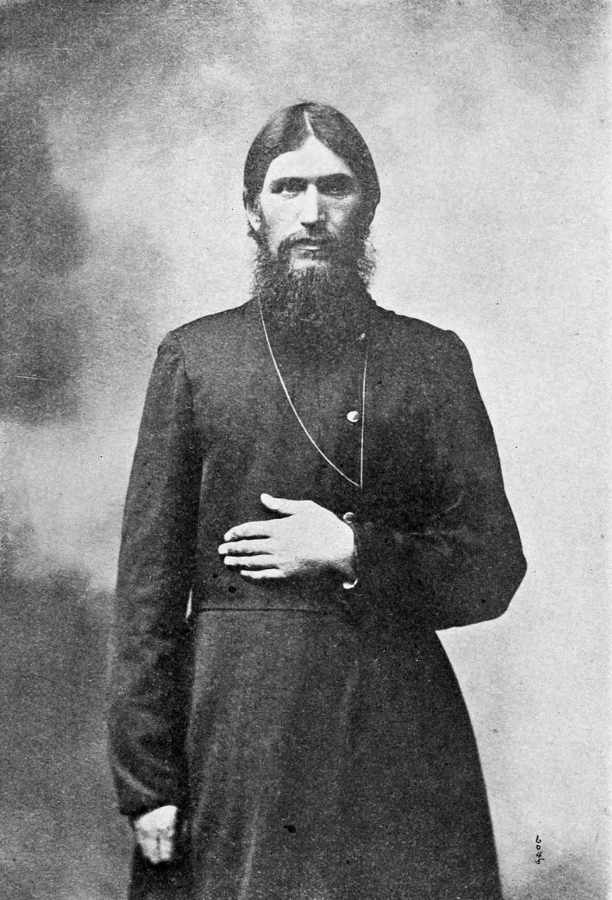Grigori Yefimovich Rasputin was a Russian mystic and self-proclaimed holy man who befriended the family of Nicholas II, the last Emperor of Russia, thus gaining considerable influence in late Imperial Russia. Rasputin was born to a peasant family in the Siberian village of Pokrovskoye in the Tyumensky Uyezd of Tobolsk Governorate (now Yarkovsky District of Tyumen Oblast). He had a religious conversion experience after taking a pilgrimage to a monastery in 1897. He has been described as a monk or as a strannik (wanderer or pilgrim), though he held no official position in the Russian Orthodox Church. He traveled to St. Petersburg in 1903 or the winter of 1904–1905, where he captivated some church and social leaders. He became a society figure and met Emperor Nicholas and Empress Alexandra in November 1905. In late 1906, Rasputin began acting as a healer for the imperial couple’s only son, Alexei, who suffered from hemophilia. He was a divisive figure at court, seen by some Russians as a mystic, visionary, and prophet, and by others as a religious charlatan. The high point of Rasputin’s power was in 1915 when Nicholas II left St. Petersburg to oversee Russian armies fighting World War I, increasing both Alexandra and Rasputin’s influence. Russian defeats mounted during the war, however, and both Rasputin and Alexandra became increasingly unpopular. In the early morning of 30 December [O.S. 17 December] 1916, Rasputin was assassinated by a group of conservative noblemen who opposed his influence over Alexandra and Nicholas. Historians often suggest that Rasputin’s scandalous and sinister reputation helped discredit the Tsarist government and thus helped precipitate the overthrow of the Romanov dynasty a few months after he was assassinated. Accounts of his life and influence were often based on hearsay and rumor. He remains a mysterious and captivating figure in popular culture.
| Alias Rasputin |
| Real Names/Alt Names Grigori Yefimovich Rasputin |
| Characteristics Villain, Magician, Historical Figures, Hypnotist, Magic Caster, Modernism Era, Russian |
| Creators/Key Contributors ○ |
| First Appearance Historical figure (b. 1869 – d. 1916) |
| First Publisher ○ |
| Appearance List Books: Rasputin and the Russian Revolution (1918) by Princess Catherine Radziwill; Rasputin: His Malignant Influence and His Assassination (1927, reprinted 1934/1935) by Prince Felix Yusupov; Rasputin: The Holy Devil (1928) by René Fülöp-Miller; Comment j’ai tué Raspoutine (1924; Eng. trans. The Murder of Rasputin, 1985) by Vladimir Purishkevich — assassin’s memoir. Film: The Fall of the Romanoffs (1917/1918); Rasputin, the Black Monk (1917); Rasputins Liebesabenteuer (Rasputin the Holy Sinner, Germany, 1928) — rereleased in US as Rasputin, the Holy Devil (1929); Rasputin and the Empress (MGM, 1932); Rasputin, Dämon der Frauen (Rasputin, Demon with Women, 1932). Comics: Jumbo Comics #120, Kid Eternity #15, Air Fighters Comics vol. 2 #1 (#13), Cat-Man Comics vol. 2 #12 (#25). |
| Sample Read Rasputin and the Russian Revolution by Princess Catherine Radziwill [PG] |
| Description Grigori Yefimovich Rasputin was a Russian mystic and self-proclaimed holy man who befriended the family of Nicholas II, the last Emperor of Russia, thus gaining considerable influence in late Imperial Russia. Rasputin was born to a peasant family in the Siberian village of Pokrovskoye in the Tyumensky Uyezd of Tobolsk Governorate (now Yarkovsky District of Tyumen Oblast). He had a religious conversion experience after taking a pilgrimage to a monastery in 1897. He has been described as a monk or as a strannik (wanderer or pilgrim), though he held no official position in the Russian Orthodox Church. He traveled to St. Petersburg in 1903 or the winter of 1904–1905, where he captivated some church and social leaders. He became a society figure and met Emperor Nicholas and Empress Alexandra in November 1905. In late 1906, Rasputin began acting as a healer for the imperial couple’s only son, Alexei, who suffered from hemophilia. He was a divisive figure at court, seen by some Russians as a mystic, visionary, and prophet, and by others as a religious charlatan. The high point of Rasputin’s power was in 1915 when Nicholas II left St. Petersburg to oversee Russian armies fighting World War I, increasing both Alexandra and Rasputin’s influence. Russian defeats mounted during the war, however, and both Rasputin and Alexandra became increasingly unpopular. In the early morning of 30 December [O.S. 17 December] 1916, Rasputin was assassinated by a group of conservative noblemen who opposed his influence over Alexandra and Nicholas. Historians often suggest that Rasputin’s scandalous and sinister reputation helped discredit the Tsarist government and thus helped precipitate the overthrow of the Romanov dynasty a few months after he was assassinated. Accounts of his life and influence were often based on hearsay and rumor. He remains a mysterious and captivating figure in popular culture. |
| Source Grigori Rasputin – Wikipedia |



